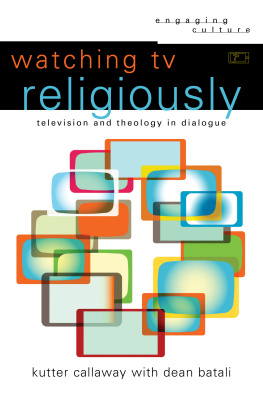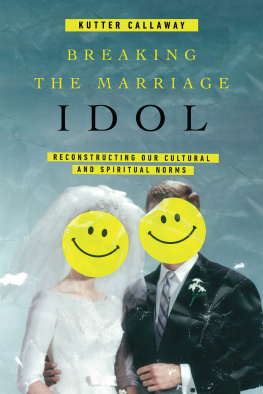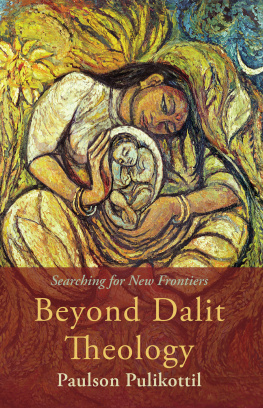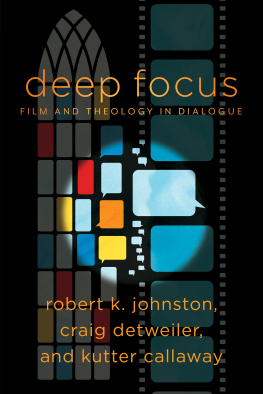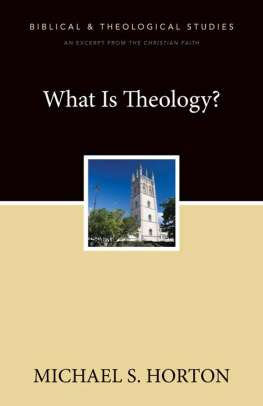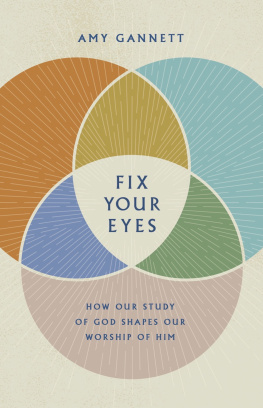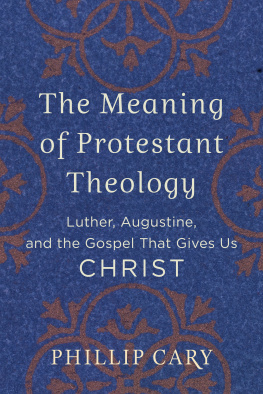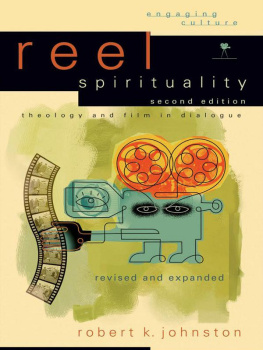1. The Pilot Episode: What Is TV?
2. Becoming TV Literate: Formal Analysis
3. Becoming TV Literate: Process and Practice
4. The Telos of TV
5. A Very Brief History of the Church and TV
6. Channeling Theology: TV and Gods Wider Presence
7. Ethics: Is There Anything Good on TV?
glossary of tv terms
accretion. A mode of drillable narrative complexity generated by the volume and duration of a particular narrative.
act break scenes. Scenes that come right before commercials on broadcast television.
affective music. Musical codes that provide viewers with interpretive access to that which is unseennamely, a shows tone or mood, the inner workings of a characters psychology, and the audiences empathic bond with the narrative.
atmosphere. The element of a narrative that grapples with the unalterable givens in lifedeath, systemic injustices, and otherness. Atmosphere raises the question of boundaries, of what is possible, and of what limits human beings.
authentic narrative space. The physical contours of a narratives diegetic world, often fleshed out through sound.
beating out a story. Sketching out only the basic story points in their narrative order.
beat sheet. A brief, two- to four-page summary of an individual episode.
binary oppositions. The underlying narrative structure of many sitcom characterizations, leveraging binaries to create tension that can easily be diffused in thirty minutes.
breaking a story. The process in which the writers room determines not simply what will happen within an episode or series but how it will happen.
centrifugal (narrative complexity). A form of serialization that creates narrative depth by spinning out into the larger world of other agents and structural forces.
centripetal (narrative complexity). A form of serialization that creates narrative depth by adding layers to the interior of a characters psychology.
cessation. An end to a series that serves as a stoppage or wrap-up without any indication that it will be the end of the series.
character. An aspect of story structure involving the characters and how they interact with one another and society at large. These stories address the question of human need and potential, thereby offering us paradigms for what it means to be human.
conclusion. A series that ends when a programs producers are able to craft a final episode knowing that it will be the end.
contextual music. A function of music/sound that involves both musics role in the context of a particular TV show and its ability to draw meaning from the viewers broader musical-cultural context.
density. A mode of drillable narrative complexity that encourages audiences to dig deeper and discover hidden depths of meaning that go otherwise unnoticed.
diegesis. The self-contained universe that the characters inhabit in a story-world.
drillable. The manner in which a show encourages audiences to participate in its narrative structure, most often through density or accretion.
editing. The process of cutting and remixing material and placing it into a dynamic relationship with other visual and aural elements.
episode. An individual installment of a TV series, either containing a complete narrative of its own or otherwise marked off from other episodes, usually by opening and end-credit sequences.
extra-diegetic. The level of narration that refers to the world of the narrator, whether that narrator is an actual agent in the story or an implied narrator.
finale. A conclusion with a going-away part. Finales are defined more by their surrounding discourse and hype than by any inherent properties of the narrative itself.
mise-en-scne. Literally placing on stage. Most often used to describe the visual elements of theatrical or cinematic productions. When applied to television, it concerns anything that appears before the camera.
mockumentary. A fully scripted, fictional narrative leveraging the aesthetics of documentary filmmaking in a conscious and self-referential way.
montage. A series of discrete images or scenes placed together to form a narrative whole.
multi-camera setup. A method of filming a TV program that makes use of multiple cameras capturing a single performance from various angles. This setup is often found in sitcoms using a live studio audience.
musical other. Music that detaches itself from the narrative world and speaks from a location beyond the narrative.
narrative complexity. The particular manner in which a narrative creates depth, texture, and layers among its characters and settings.
narrative flow. The overarching spectrum of TV narratives within which all its segments exist, from the segment all the way to the corporation.
narrative world (or story-world). The various levels of narration implied by a given story.
network. The corporation responsible for broadcasting and financing TV programming.
non-diegetic. The narrative space where the audience sees, hears, reads, or otherwise encounters the story.
opening credits (or credit sequence or inter-title sequence). The segment of an episode that follows the teaser and precedes the narrative proper. It usually features a theme song, a title card, and a listing of the principal actors.
pitching. Suggesting various ideas about the setup or plot of a TV script.
plot. The manner in which a story moves through time. Plot is about the process by which a narrative moves from point A to point B.
point of view. Stories are told from a particular vantage point, which is often expressed through various narration techniques, both overt and implied.

